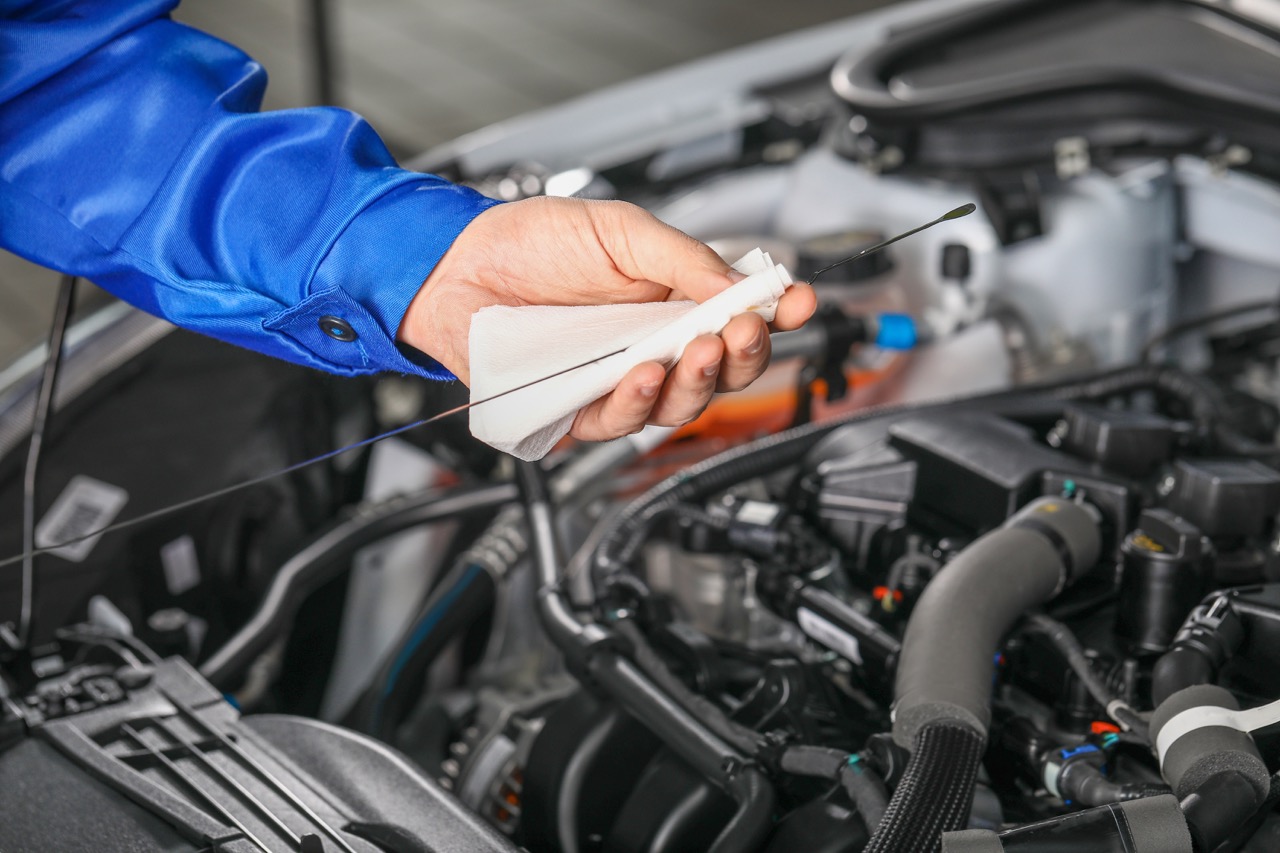
Your vehicle’s engine oil is just about the lifeblood of your car’s engine. It lubricates the internal moving parts, contains detergents to keep contaminants from entering, and more.
Because of that, every driver must understand why engine oil might become low and what to do when it happens more often than average. After all, low engine oil can cause irreversible damage to your engine. So, let’s look at what might be going on and how to stay safe on the road when your car is showing a low oil alert.
Have You Checked Your Oil Levels Lately?
Although it’s essential to have a professional mechanic or technician change or flush out the oil in your vehicle, we still think it’s vital that every car owner knows their way around checking oil levels when the time comes. Although engine oil does get dirty (and sometimes lowers) over time, the levels shouldn’t drastically change. If you’re having an issue with inconsistent oil levels, that’s an indication of an engine that is slowly leaking oil over time or one that’s burning oil while operating.
Many drivers ask if it’s safe to operate a vehicle known to burn a little more oil than usual or has a minor leak. And although the answer is yes (it can be safe to drive), you have to keep a diligent eye on the oil levels, topping it off whenever necessary. Having said that, no driver wants or should have to deal with checking oil levels daily or weekly.
Engine Oil Leak
So, what’s the most reason for lowering oil levels? A minor or major engine oil leak. Fortunately, oil doesn’t simply disappear, which means the oil is going somewhere it doesn’t belong. It’s much easier to spot a significant leak, as you’re likely to spot the issue beneath your car. However, more minor leaks can develop and never hit the ground. This means that if you don’t see a sign of a leak on the floor below, that won’t rule out a leak completely.
This is where a trained mechanic comes in! Finding the source of a small leak isn’t the most uncomplicated endeavor, and repairing a leak often requires a mechanic to dismantle the engine. So if you think a leak might be the culprit, come by our service center as soon as possible.
Engine oil leaks can happen for multiple reasons, but some of the most common include a damaged oil filter, a crack in the engine oil pan, or even degraded seals. All of which are much easier to repair or replace than an engine that’s stalled due to little to no oil.
Engine Oil Overconsumption
But what happens if there is no actual leak and your oil levels are still low? This points to a different issue: the engine is burning oil internally. That, in itself, isn’t always a huge concern, as some engines simply due burn off a bit of oil, especially an aged engine. However, if all seals are working as they should, this would be a case when we’d recommend keeping an eye on your oil levels and topping off the engine oil between oil changes.
If the engine is burning through oil rapidly, bigger issues can arise. Keep an eye out for bluish-grey smoke coming from your engine as you drive, as this is a sign your engine is burning a significant amount of oil. It’s also a sign that it’s time to come in for a service.
Oil Check at Master Muffler of Logan
Whether a low oil pressure warning sign has suddenly turned on, or you’ve noticed your vehicle isn’t running like it used to, stop on by Master Muffler of Logan. Have questions about our wide range of services? Don’t hesitate to call us today. A friendly service member is here to help.
Related Posts
Key Takeaways On average, passenger vehicle tires last 40,000 to 60,000 miles, depending on type, driving habits, and maintenance. Replace tires when tread depth reaches 2/32”, if damaged, or older than 10 years. Regular rotation, alignment, and proper inflation extend tire life. Aggressive driving, poor roads, and harsh weather shorten tire lifespan. Take advantage [...]
When you think about car maintenance, you probably focus on oil changes, tire rotations, and maybe even brake pad replacement. But what about your brake fluid? If you’ve ever wondered, “What does brake fluid do?” or “Why is brake fluid important?”, you’re not alone. Brake fluid might not be the most talked-about part of [...]
Is that high-pitched squeal from your brakes driving you—and everyone else—crazy? Don’t ignore it. Squeaky brakes aren’t just annoying, they’re your car’s way of saying something needs attention. Whether you're cruising through Salt Lake City or winding up Idaho’s mountain passes, here’s what’s likely going on, how you can fix it, and when it [...]





